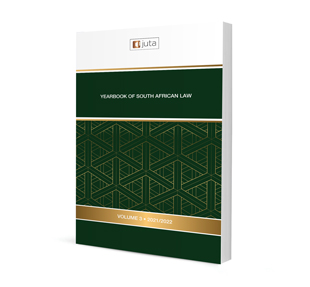The appealability of decisions to certify class actions: Where are we now? A proposed approach after Stellenbosch University Law Clinic v Lifestyle Direct Group International (Pty) Ltd (WCC)

The appealability of decisions to certify class actions: Where are we now? A proposed approach after Stellenbosch University Law Clinic v Lifestyle Direct Group International (Pty) Ltd (WCC)
Author: Theo Broodryk
ISSN: 1996-2177
Affiliations: Associate Professor of Law, Stellenbosch University
Source: South African Law Journal, Volume 140 Issue 2, p. 263-284
https://doi.org/10.47348/SALJ/v140/i2a2
Abstract
Decisions refusing to certify class proceedings are appealable. The position regarding the appealability of decisions certifying class actions is, however, less clear. Regrettably, in Stellenbosch University Law Clinic v Lifestyle Direct Group International (Pty) Ltd [2021] JOL 51475 (WCC), the court did not give a final ruling on whether a decision to certify a class action is appealable. Gamble J merely assumed, without deciding, that his decision in Stellenbosch University Law Clinic v Lifestyle Direct Group International (Pty) Ltd 2022 (2) SA 237 (WCC) to certify the class action was appealable. This article aims to clarify the preferred approach when deciding whether to permit an appeal against a decision to certify a class action.
